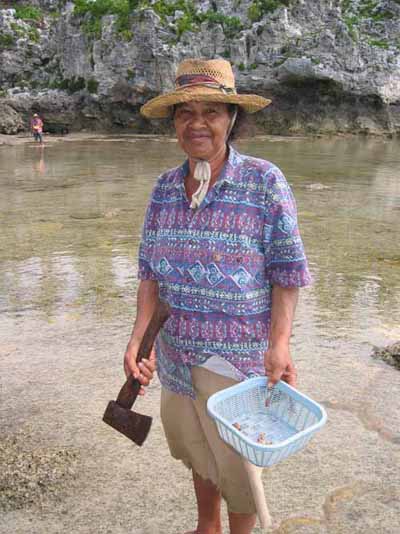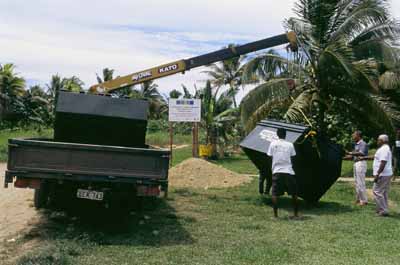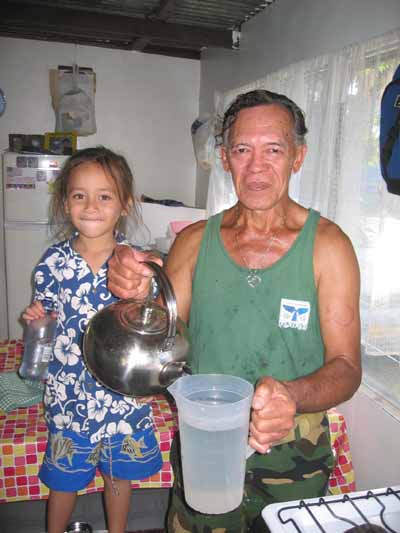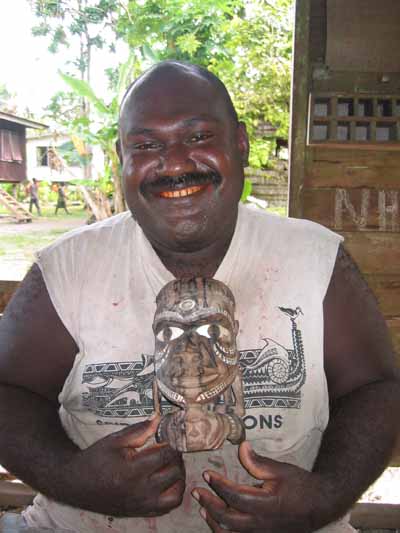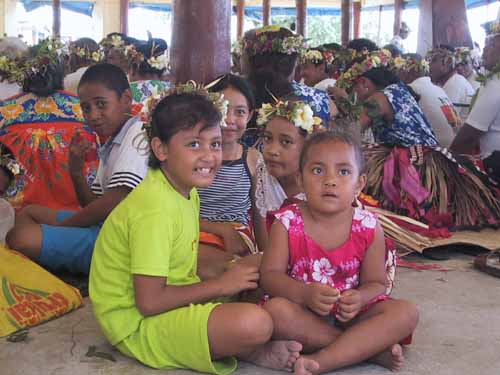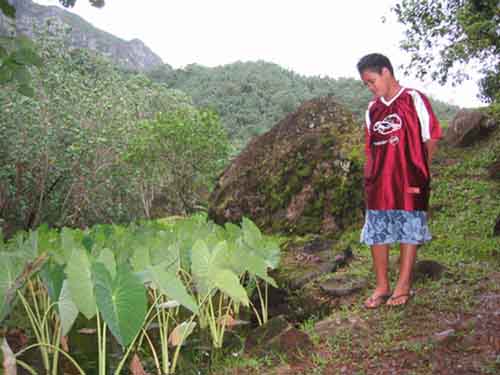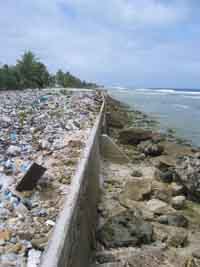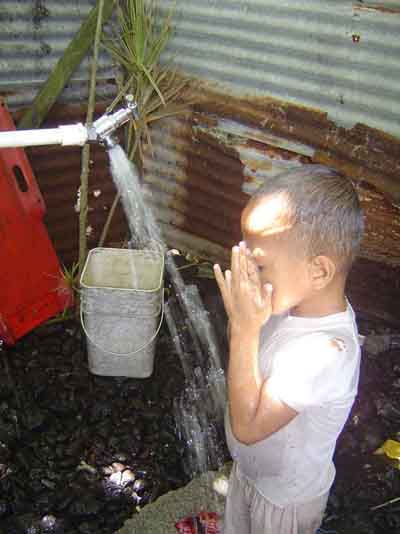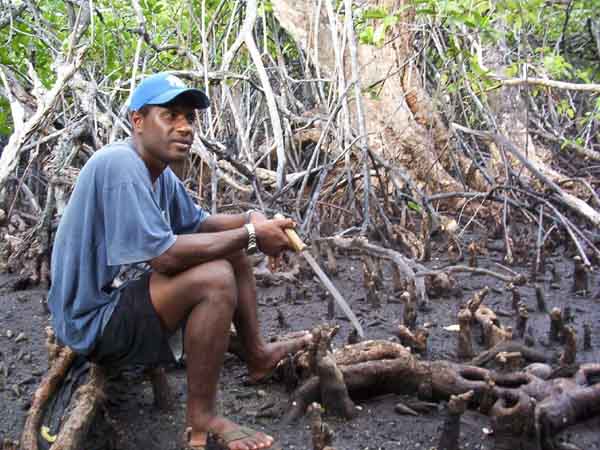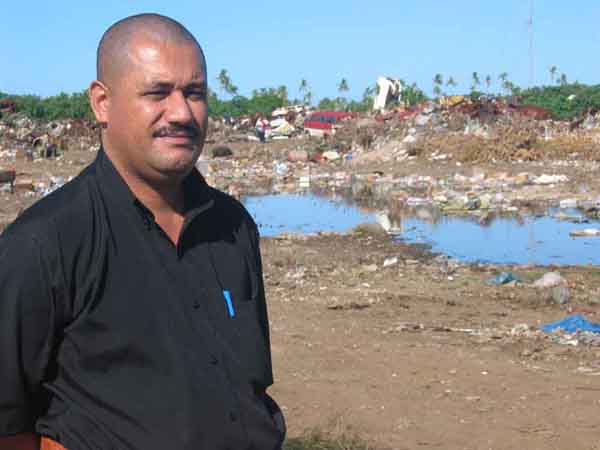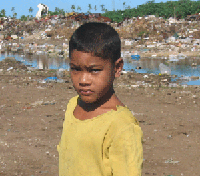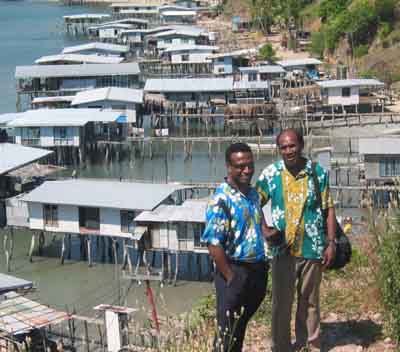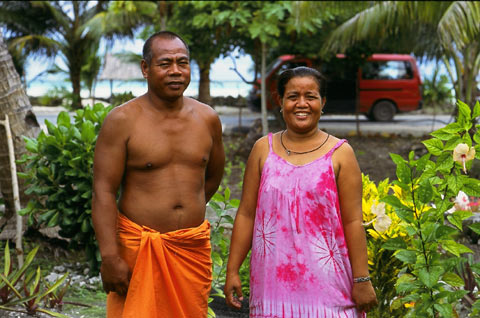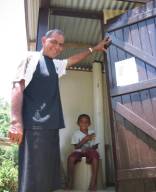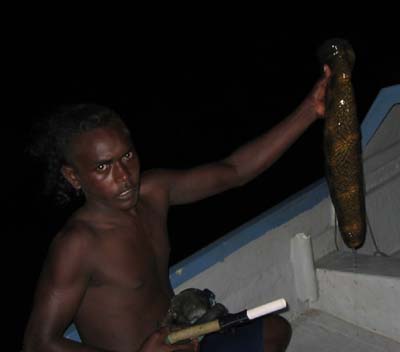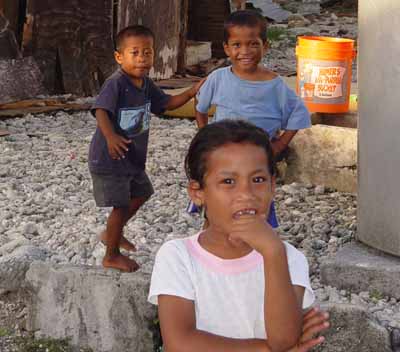







| PROGRAMMES | PROE | PROJECTS | PUBLICATIONS, LIBRARY and IRC | SITE MAP | SPREP FORUMS | WEBMAIL - Global / Local | HOME
| International Waters Project ( IWP ) | |
 |
|
| > | About IWP (Top) |
| > | Champions |
| > | Country Projects |
| > | Management Profiles |
| > | Project Contacts |
| > | Project Summary |
| > | Reports & Documents |
| Search |
Home > Programmes > International Waters Project
The
International Waters Project 2000-2006
|
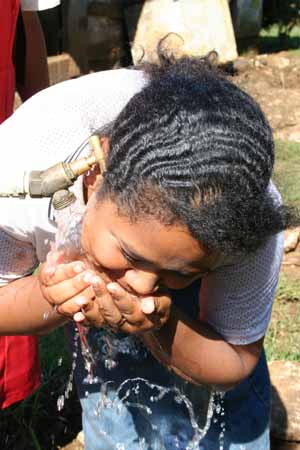
Girl
drinking in Tonga. |
Matangi Tonga Newspaper: Friday: October 21, 2005 Tonga’s underground water supply is being threatened by the careless disposal of waste that may pollute the clean water supply, warns Sione Faka’osi of Tonga’s Department of Environment. ”The quality of Tonga’s water system is not at a critical stage at the moment, still the increasing mismanagement of waste urges us to do something,” said Mr Faka’osi, who is the National Coordinator for the Tonga International Waters Project (IWP). |
Radio Australia: Praise for Pacific International Waters Project
|
|
The Pacific has won praise from the New York-based Global Environment Facility for its handling of marine and coastal management and its fresh water supplies and waste. The
Principal Technical Advisor with the GEF's International Waters
Project, says the Pacific region is the most advanced of all
small island developing regions and will be the model for
new projects in the Caribbean. |
Paradise Lost?
|
Woman
from Lepa Village, Samoa. |
By Elisabeth Easter, Pulp Magazine The South Pacific, the very thought conjures up images of pristine atolls, tropical reefs bursting with aquatic life and balmy beach living - an area of unspoilt beauty. And don’t get me started on the surf breaks – from Samoa’s mighty reefs to Fiji’s gentler (sometimes at least) beach breaks - the islands of the Pacific have something for everyone. |
Communities Helping Themselves
|
Girl
from Rarotonga |
By Asterio Takesy Too often in the past we have also focused our attention and energy on addressing the symptoms of environmental degradation rather than the "root causes." How many of us have participated in beach or village clean ups only to return the following week to find that all the rubbish has returned to our public spaces? |
Romancing the Environment - Fiji IWP Community Champion, Pita Vatucawaqa
|
Pita
Vatucawaqa. |
By Lusiana Speight |
Jenrok Models Improved Waste Management for the Marshall Islands
|
President
of the Marshall Islands, Kessai Note, with local resident,
Ned Alex, at the opening of the IWP office in Jenrok, Majuro.
|
From Suzanne Chutaro in Majuro |
Prime Minister of Samoa says Waste Management Vital to Growth of Pacific Tourism
|
|
The
Prime Minister of Samoa, Tuilaepa Aiono Sailele Malielegaoi,
says better waste management is vital to the growth of tourism
in the Pacific region. Speaking at a special event to highlight
the “2005 Year of Action Against Waste”, he said the Pacific
Regional Environment Programme (SPREP), which is headquartered
in Apia, needed to promote greater collaboration to improve
waste management in the region. |
Strengthening the Management of Niue’s Coastal Resources
|
A
gleaner collecting tube worms on Niue's reef shelf |
By Niu Tauevihi |
The Real Cost of Fiji’s Growing Mountain of Rubbish
|
Vunisinu's
installs its first ever waste disposal system |
By Tamani Nair |
Groundbreaking Study Estimates Cost of Water Pollution in Rarotonga
|
Tianoa Joseph shows his Grandson Anthony how they must boil
their tap water to make it safe |
By Steve Menzies and Noeline Browne in Rarotonga
|
Bęche-de-mer Under Pressure in Marovo Lagoon
|
Harvesting Bęche-de-mer runs contrary to Seventh Day Adventist
beliefs |
The Marovo Lagoon located in the Western Province of the Solomon
Islands is the longest lagoon in the southern hemisphere.
Once described by James A. Michener as the “eighth wonder
of the world” the lure of its spectacular natural beauty attracts
tourists from across the globe. |
Promoting the Adoption of Safe Toilet Systems in Tuvalu
|
Diarrhoea is a leading cause of death, in many Pacific Island
communities, particularly in children under five years of
age. |
The Tuvalu International Waters Project (IWP) is working together
with the neighbouring communities of Alapi and Senala to find
ways to promote the adoption of safe, practical, and cost-effective
toilet systems in Funafuti. |
Strengthening Freshwater Protection in the Cook Islands
|
Activities
above the water intakes are contaminating Rarotonga's water
supply. |
By Deyna Marsh, Assistant National Coordinator for the
Cook Islands International Waters Project |
Working to Improve Waste Management in the Marshall Islands
|
Majuro Atoll can now barely contain it's growing mountain of rubbish. |
The Marshall Islands International Waters Project (IWP) is
working with the Jenrok Village and Na Weto/Mieco communities
to try and help find practical ways to improve the management
of waste throughout the rest of Majuro. |
The Samoa IWP – Working to Protect Samoa’s Precious Freshwater Resources
|
Boy from Lepa Village |
The Samoa International Waters Project (IWP) is working with
the village of Lepa, on the island of Upolu, to try and find
practical, low cost, ways for Samoa’s rural communities to
improve their access to safe drinking water. |
Chief Manoa Kaun - Helping to strengthen the management of Vanuatu's precious coastal fisheries
|
Chief Manoa Kaun in Crab Bay on Vanuatu's Malekula Island |
Chief Manoa Kaun is the Chief of Louni Village, one of several villages that make up the community of Crab Bay, on Vanuatu’s Malekula Island. Manoa is at the forefront of the IWP’s efforts to try and find practical ways to help Vanuatu’s coastal communities strengthen the management of their rapidly dwindling coastal resources. |
The True Cost of Tonga’s Waste
|
Sione Fakaosi, National Coordinator of the Tonga IWP |
In Tonga the poor management of solid waste and liquid waste
from humans and animals has become an issue of national importance.
According to a 2002 report outlining Tonga’s “Priority
Environmental Concerns” pollution from solid and liquid waste
is now the biggest environmental problem facing the country.
The report recommended that measures needed to be taken to
minimise the impacts of this waste and to protect the freshwater
lens under Tongatapu. |
How much is poor waste management costing the Pacific?
|
Tongan boy in the dump at Nuku'alofa |
We often hear that waste – solid, human, and animal – is threatening
our water supplies, our health and even our fisheries. But
have you thought how much it also costs ordinary citizens
their hard earned cash? When polluted water makes our families
sick, we have to pay for their medicine and doctors visits.
And, if we ourselves get sick and can’t come to work, our
bosses foot the bill by paying us wages for the days that
we don’t work. Do we know how much do these losses add up
to? |
Championing Waste Reduction in Papua New Guinea
|
Narua Lovai and Kelly Madu (right) above Barakau |
For most
of his life Kelly Madu, 59, has taught in secondary schools
throughout Papua New Guinea. Now, as the Councillor for Ward
8, in Central Province, he is responsible for constituents
from the villages of Barakau, Rabuka, and Kerekadi, located
between 30 and 40 kilometres east of the national capital,
Port Moresby. |
Kiribati Champions Waste Reduction in the Pacific
|
Ruka and Tekori Tikanga - winners of the Akeatemange (Zero Waste) Competition in South Tarawa |
2005 is the “Pacific Year of Action Against Waste” and Kiribati has recently been showing the rest of the region how it can turn its “waste” problem into a valuable resource. For years it appeared that most of the 40,000 people living on South Tarawa would simply have to accept sharing their streets and beaches with the 6,500 tonnes of solid waste they generated every year. |
Fighting the Region's Invisible Killer
|
Pita Vatucawaqa and grandson with their new composting toilet in Vunisinu village |
Dr. Leonie Crennan, who has worked on sanitation issues in the Pacific region for more than 10 years, says the situation in Funafuti is now in need of urgent attention. She says that in the 1960s and 1970s, well-meaning donors encouraged the construction of septic tank systems and western flush toilets throughout the Pacific without understanding the sensitive hydrology of low-lying islands where pollutants can move easily through the groundwater system to the lagoon. Profile of Pita Vatucawaqa at: |
Improving management of bęche-de-mer in the Solomons
|
Boy from Chea Village night diving for sea cucumbers in Marovo Lagoon |
The $US400 000 Solomon Islands’ International Waters Project is designed to help coastal communities improve the management of important commercial resources such as bęche-de-mer. The project is managed by the Solomon Island’s Government in partnership with the South Pacific Regional Environment Programme, the United Nations Development Programme, and the Global Environment Facility. |
Community survey improves Marshalls waste management
|
Some of the many children living in Jenrok, Majuro Atoll |
A recently published survey could greatly assist the Republic of the Marshall Islands in develop a national plan to address its growing waste problem. In late 2003, Ben Chutaro was contracted by the International Waters Project (IWP) to carry out a “socio-economic survey” of Jenrok, a community on Majuro Atoll in the Marshall Islands. Chutaro says he was shocked by the changes that had occurred in the village where he grew up only 20 years ago. |
Training Local Facilitators Makes Immediate Impact on Fijian Villages
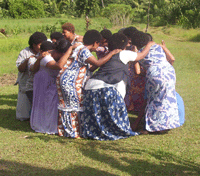 |
| In Fiji community training is bringing people together to find long-term environmental solutions |
National Coordinator, Sandeep Singh, says the Fiji International Waters Project, is providing local communities with skills to improve the management of their own resources. She says a recent programme to train local facilitators has had a significant impact in raising awareness and empowering people to address their environmental concerns.
IWP Scholarship Scheme Increases Environmental Capacity in Palau
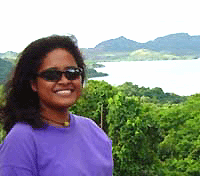 |
Kimie Ngirchechol Recipient of the Palau IWP Scholarship |
The International Waters Scholarship Scheme is helping Kimie Ngirchechol find ways to reduce the impacts of increasing development on the coastal environment of Palau. With assistance from the Scheme, Kimie has now begun work on her Masters in “Water Quality and Microbial Pollution” at the University of Guam’s Environmental Science Programme.
|
Resource Kit for Facilitators of Participatory Natural Resources |
 |
| Click on photo to go to the dedicated web page. |
| I.W.P Publications |
|
Kivori Picture Presentation(3/1/2011) |
|
PACC 2011 Calendar(3/1/2011) |
|
Tonga Joint National Action Plan Disaster Risk Management(11/18/2010) |
|
SOPAC and NIWA Tender Documents(10/13/2010) |
|
PACC Multipartite Review Report - August, 2010(8/21/2010) |
| more |
IWP Pilot Communities
Coastal Fisheries
Federated States of Micronesia -The village of Riiken, in the municipality of Gagil, on the island of Yap
Solomon Islands - The villages of Chea and Mbili Passage in Marovo Lagoon
Vanuatu - The community of Crab Bay in Malekula Island
Niue - The villages of Makefu and Alofi North
Waste Reduction
Fiji - The village of Vunisinu in Viti Levu
Kingdom of Tonga - The village of Nukuhetulu in Tongatapu
Nauru -The community of Buada
Papua New Guinea - The village of Barakau
Republic of the Marshall Islands - The village of Jenrok in Majuro Atoll
Tuvalu - The villages of Alapi and Senala in Funafuti
Republic of Palau - The village of Chollei in the district of Ngarchelong, Babeldaob
Kiribati - The community of Bikenibeu West in South Tarawa.
Freshwater Protection
Cook Islands - The Takuvaine community in Rarotonga
Samoa - The village of Lepa and Apolima Island.

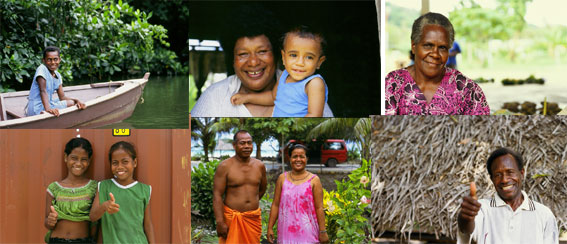
 View of the Pacific from South Tarawa
View of the Pacific from South Tarawa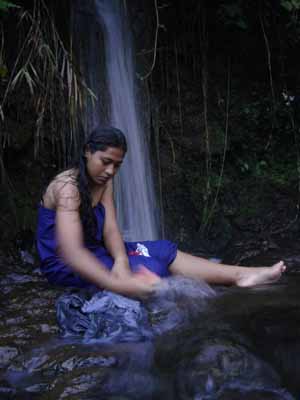
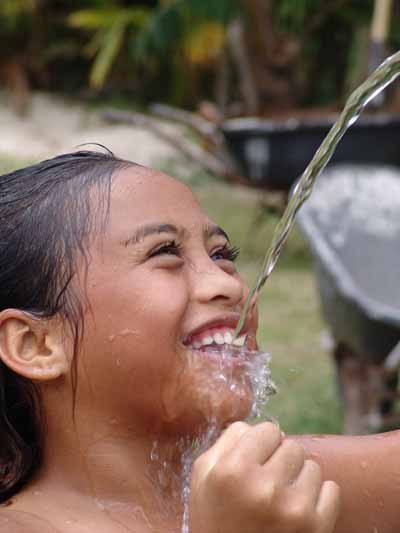
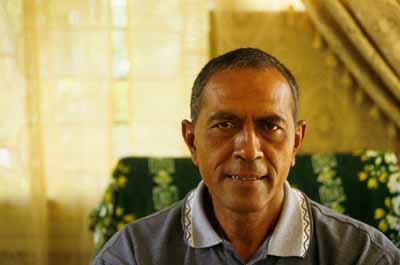
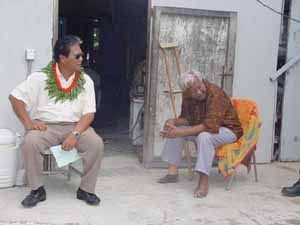
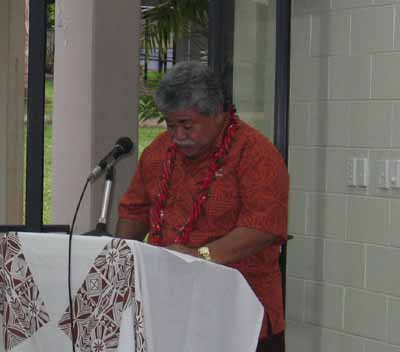 The
Prime Minister speaking at the special IWP event to celebrate
SPREP's "Year of Action Against Waste"
The
Prime Minister speaking at the special IWP event to celebrate
SPREP's "Year of Action Against Waste"